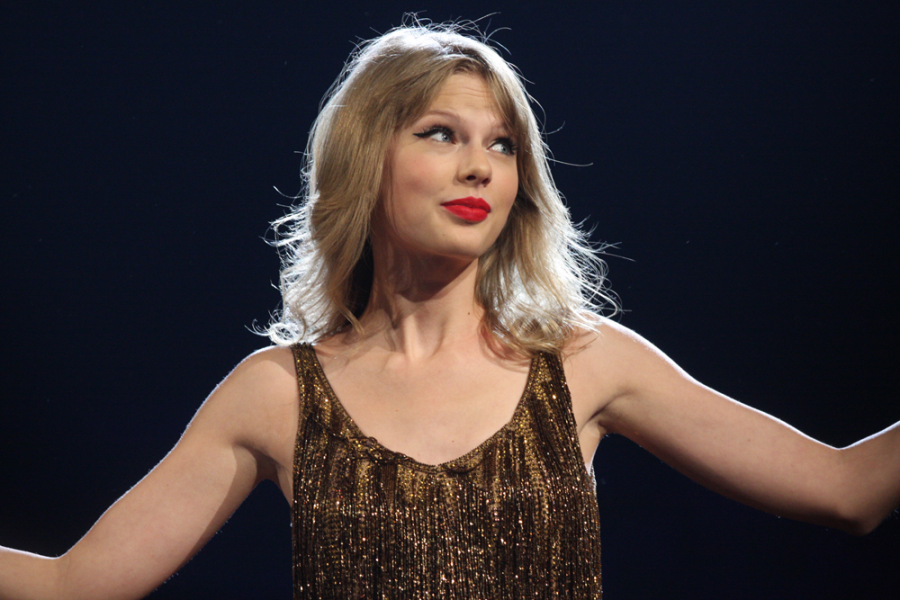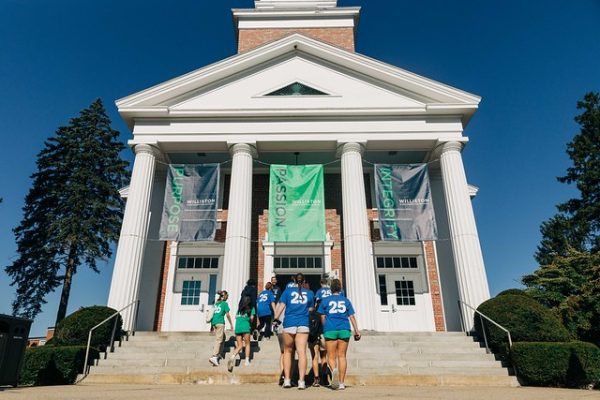Haters Gonna Hate, Hate, Hate
Taylor Swift is on her way to becoming a billionaire, the first person to do so with music as the main source of income.
Swift, a 33-year-old American singer-songwriter, is one of the best-selling musicians in history and one of the most prominent celebrities of this generation. She has won 11 Grammy Awards, an Emmy Award, 40 American Music Awards, 29 Billboard Music Awards, and 92 Guinness World Records.
Swift announced her long-awaited “Eras” world tour on Oct. 21. The U.S. dates run from March to August 2023. Many fans were unsuccessful in buying tickets, as the sheer volume of people on Ticketmaster caused the website to crash. According to Forbes, the tour is expected to make $620 million dollars. Swift is estimated to receive between 100% and 110% of the $591 million ticket sales for the tour.
Combined with Swift’s net worth of $570 million, according to Forbes, the profit from her tour will boost her to billionaire status.
A number of Williston students and faculty have mixed feelings about Swift’s dramatic increase in wealth.
Parker Brown, a sophomore from Roxbury, Conn., believes Swift’s staggering amount of wealth is excessive.
“No one needs a billion dollars,” Parker said. “No one even needs ten million let alone 100 times that. They are keeping wealth from those that need it and that alone is unethical.”
Parker noted that she has not supported Taylor Swift for a while due to various reasons, one of which being her large amount of wealth.
“It is hard, but I really put an effort into ethical consumption,” she said. “I can’t sleep with myself at night knowing I supported a form of unethical behavior.”
Nonetheless, many have stated that they will continue supporting Swift as she achieves billionaire status.
Senior Austin Conroy from Nantucket, Mass., will definitely continue listening to Swift’s music.
“There is no reason to discriminate someone based on their wealth or lack thereof,” he said.
Similarly, Math and Economics teacher Teddy Schaffer sees no correlation between an individual’s wealth and music.
“I will absolutely still support Taylor Swift,” he said. “Her net worth doesn’t affect my enjoyment of her music.”
For many Swifties, Swift’s accumulation of wealth calls into question the combination of ethics and vast amounts of wealth.
Senior Chance Thorne-Begland, from Richmond, Virginia, believes a billionaire, such as Bill Gates, can be ethical.
“Ethical billionaires do exist, but they are very rare” he said. “Bill Gates has dedicated his life to philanthropy. I admire his support for media outlets such as NPR.”
Austin thinks Warren Buffet is a good example of an ethical billionaire.
“Warren Buffet made his money through investing in stocks,” Austin said. “He simply found value in companies that many deemed not valuable and profited greatly after holding them for long periods of time. No unethical actions were taken to amass his wealth.”
Austin pointed out another example of an ethical billionaire.
“Ben Silbermann created Pinterest and is now a billionaire because of it,” he said. “All he did was create a site for people to share their ideas and inspirations.”
However, Parker feels strongly about billionaires hoarding wealth.
“A billion dollars is too massive of an amount to truly be built through individual means,” she said. “It is built on the backs of others, often underpaid and in bad working conditions.”
There is controversy surrounding the debate on whether billionaires are obligated to give back to society. Even though most billionaires donate money to philanthropy, these are small amounts compared to the overall wealth they have.
Ben Carlan, a senior from Conway, Mass., acknowledges the social responsibility of billionaires.
“Billionaires should be morally obligated to give back to society because of the unequal distribution of wealth,” he said. “It’s definitely an achievement, but we should also recognize that [Swift] should give some of her money back.”
Austin maintains that billionaires have no moral obligation to donate their hard-earned money.
“In the same way that you do not give money to every charity or homeless person that solicits you for donation, no one has to do anything with their money that they don’t want to,” he said. “Despite there being no need for billionaires to give back to society, almost every single billionaire gives back in some way.”
Tom Johnson, History and Global Studies Deptartment Head, notes a distinction between billionaires making money and keeping money.
“I think it’s possible to be an ethical billionaire, but only in the sense of making that much money,” he said. “If they keep it, it likely becomes unethical, unless the keeping is meant to accrue even more money that will then be donated away or spent on public goods.”
Fans acknowledge Swift’s notable achievement of potentially becoming the youngest female self-made billionaire, a breath of fresh air in a sector dominated by men.
Ranked at number one on DoSomthing’s “Gone Good” list as the most charitable celebrity for four years consecutively and presented with the Nickelodeon Big Help Award by Michelle Obama, Swift is known for her generosity and large donations to charity. She has supported over 33 charities and foundations, including Make-A-Wish Foundation and Music for Relief.
In 2008, Swift donated $100,000 to the Red Cross in Cedar Rapids, Iowa to help the victims of the Iowa flood. In 2012, Swift donated $4 million to the Nashville Country Hall of Fame to open up the Taylor Swift Education Center where kids can learn music through interactive activities and classrooms.
Amidst the Covid pandemic, Swift donated thousands of dollars to fans after noticing some Swifties’ tweets confessing that they have lost their jobs or were facing eviction.
In spite of that, some fans have gone to Twitter to express their discontentment with Swift, voicing slogans like “Eat the Rich.”
Joe Zhou, a junior from Shanghai, China, does not believe in the dramatization of Swift’s wealth.
“The statement ‘Eat the Rich’ is a bit off,” he said. “We should encourage billionaires to give back to the society but their wealth should not be the reason we attack them.”
Likewise, Schaffer does not agree with these comments.
“The extreme version of ‘Eat the Rich,’ implying that society just takes all of [billionaires’] money, doesn’t make much sense,” he said.
These sentiments have been exacerbated by claims over why Swift did not make her tickets more accessible and affordable, given that many still struggle financially due to post-Covid unemployment.
Villainizing the rich may not be the best solution; encouraging philanthropy and enacting a more progressive tax policy can reap more social benefits.
Many billionaires have signed The Giving Pledge, a campaign encouraging extremely wealthy individuals to contribute at least half of their net worth to philanthropy, in an effort to give back to society. The Giving Pledge was founded in 2010 by Bill Gates and Warren Buffet. The pledge is not a binding legal contract, but a promise to dedicate a substantial amount of wealth to charitable causes.
As of June 2022, the pledge has 236 signatories from 28 countries. Notable pledgers include Elon Musk, Warren Buffet, Bill Gates, MacKenzie Scott, and Mark Zuckerberg. Swift has yet to sign the pledge.












